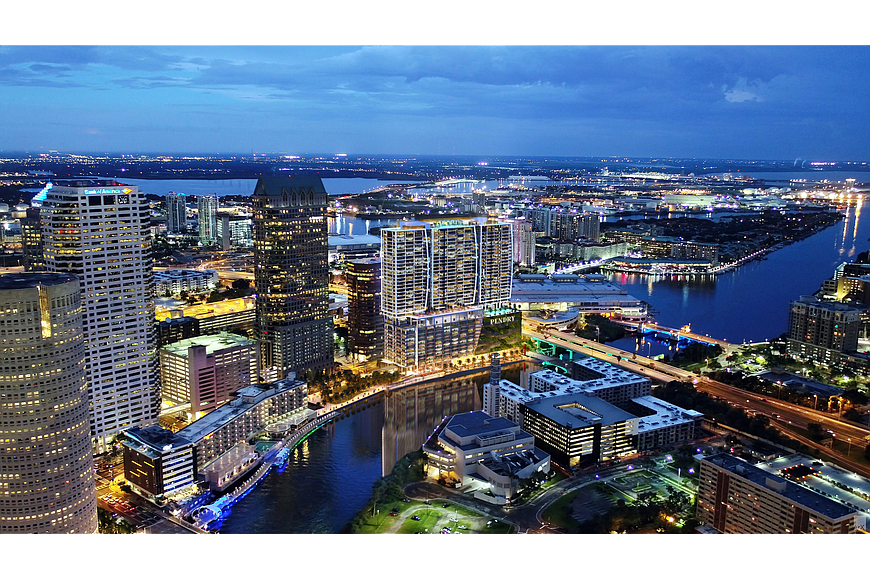- March 31, 2025
-
-
Loading

Loading

When COVID-19 first appeared, and for many months after that, there was a fear among those in hospitality that global tourism would be crushed and it would take years to recover. Airlines would shut down. Airports would empty. Amusement parks would shutter. Rental cars would gather dust.
And that hotels would bear an unfair brunt of the pandemic.
Many of those predictions came true. The industry came to a screeching halt. But it's slowly begun to claw its way back with Florida, not surprisingly, bouncing back quicker than most, as a great many travelers found their way to the state’s beaches and theme parks.
Yet one subsection of the travel industry didn't bounce back as quickly and, there, Florida hasn’t been immune: hotel construction. The pandemic and its aftermath have slowed construction in the hotel industry, causing a big dip in the number of rooms being built worldwide.
While this is far from over, as the world begins to live with the reality of COVID-19, and travel restrictions are lifted, there are signs room construction is beginning to bounce back. Here is where Florida, which saw tourism numbers spike in 2021, is bucking the trend and is ahead of much of the world.
But first the bad news.
“Florida is indeed one of the few states that has experienced a very meaningful increase in tourism, especially as compared to Northeastern or Midwestern states,” says Lou Plasencia, CEO of The Plasencia Group, a Tampa-based hotel developer, brokerage and consulting company. “However, Florida was by no means alone in the decline in supply growth.”
According to a report released in January by Nashville hospitality research firm STR, hotel construction worldwide is down in December 2021 when compared to December 2020. STR reports that in Europe the number of rooms under construction is down 7.6% to 221,789 rooms. In the Middle East and Africa, it’s down 5.5% to 130,225 rooms under construction. The Americas were the hardest hit, with the number of rooms under construction down 16.8% to 211,453.
Asia was up, though, with 5% rise in the number of rooms under construction to 473,983. More than half, 290,265, was in China.
In the U.S., hotel room construction was down 19.2%, with 158,906 rooms under construction.
Florida fared worse. Despite a big jump in tourism in 2021, hotel room construction fell 28%, to 16,282 rooms under construction from December 2020 to December 2021.
While it's a steep fall, it's not all negative, Plasencia says. The lack of new supply, combined with occupancy hitting all-time highs statewide, “has worked in the hospitality industry’s favor,” he says.
“Simple supply and demand dynamics have allowed Florida hotel operators to push rates higher.”
While this is good for business, Plasencia expects things to change over the next two years as projects on hold due to the pandemic are “dusted off” and capital entering the U.S. moves into hotel construction and financing.
Some of that expected growth and action in the hotel business is already manifesting itself.
From the Floridan Palace Hotel in downtown Tampa south to the Naples Beach Hotel and Golf Club, hotel brands are selling fast and for record prices. And their new owners are spending millions more to expand and spruce up their newly acquired properties.
Hotels aren’t just changing hands. Developers are spending millions on new properties.
In downtown Tampa, just blocks from the Floridian Palace, luxury hotelier Pendry Hotels & Resorts is building a five-star property on the city’s riverfront. And in Naples, the Camalier family, longtime area residents and property owners, are partnering with Ocean Properties Hotels & Resorts and Affiliates to construct, develop and operate the Old Naples Hotel, a 109-room luxury hotel.
Developers and hotel operators say the reason to be bullish and invest in Florida is that, despite the pandemic, the state remains a beacon for travelers looking for the beaches of the Gulf Coast, the theme parks of Orlando or the international vibe of South Florida.
Driven by those factors, hoteliers look at the state as ripe for building, once again separating Florida from everyone else.
This isn’t just anecdotal.
When putting together its report, STR researchers looked at the number of rooms planned to gauge growth.
The firm found that in Florida, 31,066 rooms are planned, a 46% jump from December 2020 to December 2021. And it’s grown since then. As of Jan. 27, 31,623 rooms are planned for the state.
While the state seems to have the brightest future, the trend upward is not just a Florida phenomenon. In the U.S., the numbers of rooms planned rose 38.9% from December 2020 to December 2021.
Alison Hoyt, STR’s senior director of consulting, says while 2021 was the second year “far fewer rooms” were under construction, the pandemic will affect the pipeline of rooms differently than the previous recession. Back then, Hoyt says, “construction declines persisted from 2008 through 2010, but with massive jump in planning today, the construction downturn may not last as long as more rooms advance to later phases of the pipeline.”
There is one ominous sign for some localities and, possibly, the industry. The continued downturn of business travel.
This is a segment of the travel industry that helps cities like Tampa, which bring in convention travelers and those coming for meetings with local companies. As office life remains remote and more work is accomplished from home, fewer of these one-day and two-day visitors are making the trip.
One STR analyst said earlier this year that while growth in leisure travel is encouraging, “the wildcard for the overall industry’s continued recovery remains a more substantial return of the business traveler.”